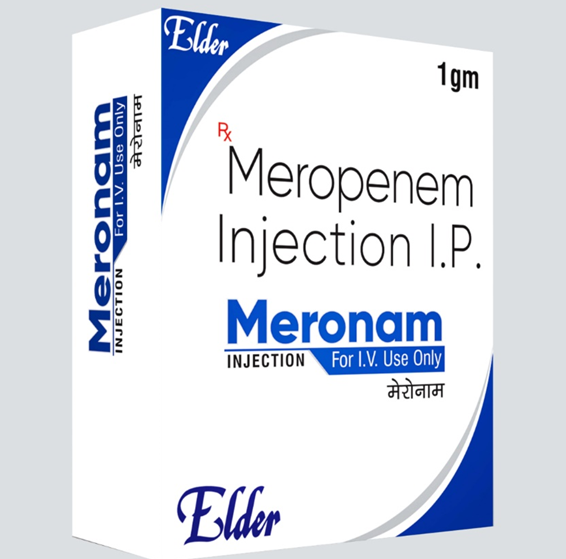In caring for a client who is receiving meropenem IV for nosocomial pneumonia, which assessment finding is most important for the nurse to report to the health care provider?
Yellow-tinged sputum
Nausea and headache
Watery diarrhea
Increased fatigue
The Correct Answer is C
Choice A reason: Yellow-tinged sputum is not a critical finding for the nurse to report, as this is a common sign of pneumonia and does not indicate an adverse reaction to meropenem. This is a distractor choice.
Choice B reason: Nausea and headache are not urgent findings for the nurse to report, as these are mild side effects of meropenem and can be managed with supportive measures. This is another distractor choice.
Choice C reason: Watery diarrhea is an important finding for the nurse to report, as this can indicate a serious complication of meropenem, such as Clostridioides difficile infection, which can cause severe dehydration, electrolyte imbalance, and sepsis. Therefore, this is the correct choice.

Choice D reason: Increased fatigue is not a significant finding for the nurse to report, as this can be related to the client's underlying condition and does not suggest a problem with meropenem. This is another distractor choice.
Nursing Test Bank
Naxlex Comprehensive Predictor Exams
Related Questions
Correct Answer is D
Explanation
Choice A reason: Advising the client to place one nitroglycerin tablet under his tongue as a precaution is a dangerous action for the nurse, as this can cause severe hypotension and cardiovascular collapse due to the interaction between tadalafil and nitroglycerin. This is a contraindicated choice.
Choice B reason: Telling the client to have someone bring him to an emergency department immediately is an unnecessary action for the nurse, as there is no evidence of any serious adverse reaction or complication from tadalafil. This is an overreaction choice.
Choice C reason: Instructing the client to increase his intake of oral fluids until the skin flushing is relieved is not an appropriate action for the nurse, as this does not address the cause of the flushing, which is vasodilation due to tadalafil. This is a distractor choice.
Choice D reason: Reassuring the client that skin flushing is a common side effect of the medication is an appropriate action for the nurse, as this can calm the client and educate him about the expected effects of tadalafil. Therefore, this is the correct choice.
Correct Answer is D
Explanation
Choice A reason: Increasing oral fluids may help with hydration, but it will not reduce skin flushing caused by lisinopril. Lisinopril is an angiotensin-converting enzyme (ACE) inhibitor that dilates blood vessels and lowers blood pressure. Flushing occurs due to increased blood flow to the skin.
Choice B reason: Nitroglycerin is a vasodilator that relaxes smooth muscle in blood vessels and reduces chest pain caused by angina. It is not indicated for skin flushing caused by lisinopril. Moreover, nitroglycerin can lower blood pressure further and cause hypotension, headache, dizziness, and fainting.
Choice C reason: Going to an emergency department is not necessary for skin flushing caused by lisinopril. Flushing is not a sign of an allergic reaction or anaphylaxis, which would require immediate medical attention. Flushing is also not a symptom of a heart attack or stroke, which would present with other signs such as chest pain, shortness of breath, arm numbness, or slurred speech.
Choice D reason: Reassuring the client that facial flushing is a common side effect of lisinopril is the best action for the nurse to take. Flushing is not harmful or dangerous, and it usually subsides within a few hours. The nurse should explain the mechanism of action of lisinopril and its benefits for lowering blood pressure and preventing angina. The nurse should also advise the client to monitor his blood pressure regularly and report any signs of hypotension, such as dizziness, lightheadedness, or fainting.
Whether you are a student looking to ace your exams or a practicing nurse seeking to enhance your expertise , our nursing education contents will empower you with the confidence and competence to make a difference in the lives of patients and become a respected leader in the healthcare field.
Visit Naxlex, invest in your future and unlock endless possibilities with our unparalleled nursing education contents today
Report Wrong Answer on the Current Question
Do you disagree with the answer? If yes, what is your expected answer? Explain.
Kindly be descriptive with the issue you are facing.
